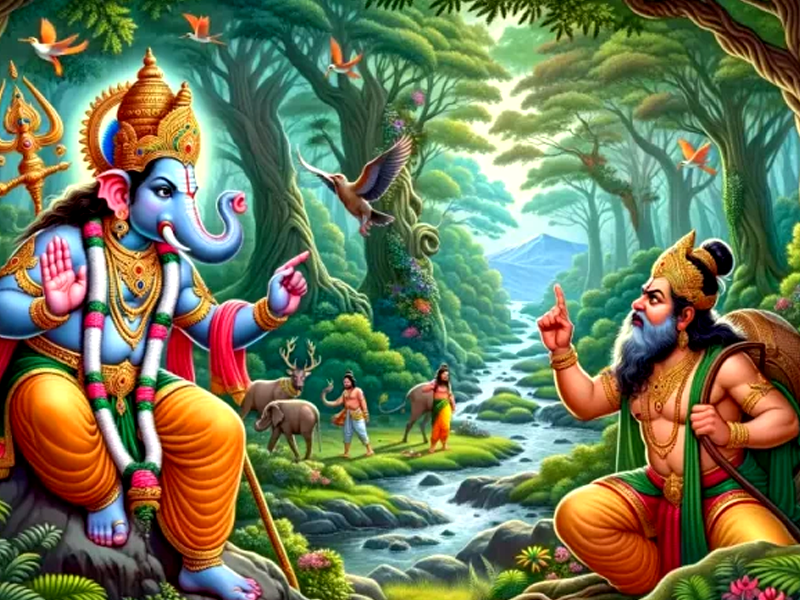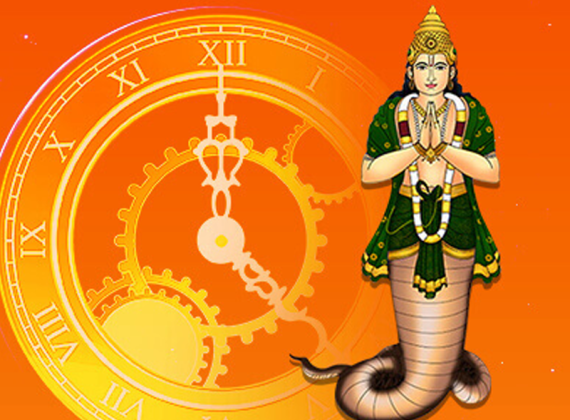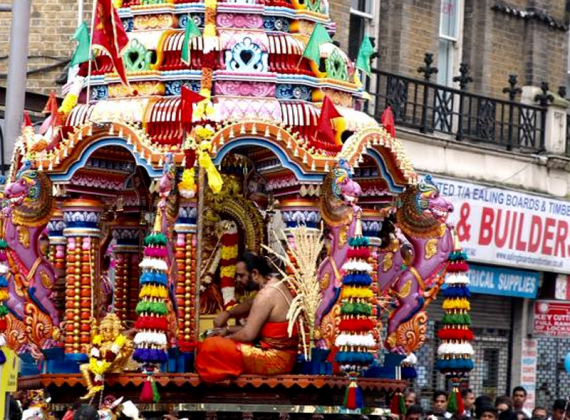
What is Pillaiyaar Kathai?
Pillaiyar Kathai (Perungkathai) Viratham (known as Ganesha) is one of the most significant fasts observed by Hindus. It is a 21-day fast that begins on Chaturthi Tithi (fourth day) in the month of Kartika and ends on Shashti Tithi (sixth day) in the month of Margashirsha.
This fast is known by various names, including Pillayar Perungatha Viratham, Vinayaka Shashti Viratham, Pillayar Kathai Viratham, and Pillayar Nonbu.
It is considered one of the most auspicious fasts dedicated to Lord Pillaiyaar (Ganesha).
According to Hindu mythology, this day commemorates Lord Pillaiyaar's victory over the demon Gajamukhasuran. Hence, the 'Gajamukhasura Sangkara' (Slaying of the Elephant-faced Demon) is enacted in Pillaiyaar temples at the conclusion of the Pillayar Kathai Viratham.
Regardless of the specific fast, it is customary to begin by invoking Lord Pillaiyaar on the first day. A Pillaiyaar idol made of clay, cow dung, sandalwood, or turmeric is installed in the puja room or a sacred space and worshipped.
Among the various materials, idols made of turmeric are considered especially auspicious for worshipping Lord Pillaiyaar.
Why is observing the Pillaiyaar Kathai viratham important?
During the 21-day observance of Pillaiyaar Kathai Viratham, devotees recite the Pillaiyaar Puranam, an ancient Hindu scripture entirely devoted to Lord Pillaiyaar. This sacred text encompasses various aspects of Pillaiyaar's life, including mythological stories, historical events, and religious rituals associated with the deity.
The Pillaiyaar Puranam holds a revered status among the Ganapatyas, followers of the Pillaiyaar-centric sect in Hinduism. Interestingly, despite its profound significance, this text is considered a relatively later addition to Hindu scriptures.
According to Hindu belief, listening to the recitation of the Pillaiyaar Puranam bestows numerous blessings.
It is said to absolve one's sins, bless childless couples with offspring, lead unmarried individuals to matrimony, and remove obstacles from one's path.
Furthermore, it is believed that families who partake in this recitation are blessed with prosperity, good health, and perpetual happiness. Additionally, children are thought to be endowed with wisdom and success in their endeavours.
The Glory Of Arukampul
According to Hindu mythology, Yasini, a celestial maiden, performed penance with the desire to marry Lord Pillaiyaar.
However, the legend states that Pillaiyaar declined her proposal. Instead, he transformed himself into the sacred durva grass (also known as arugampul or arugula) and blessed it, declaring it his most cherished object.
The durva grass is known for its resilience. Even after prolonged periods of rain, it dries out without perishing and swiftly regenerates with the slightest moisture.
Our ancestors used this attribute of durva grass as a metaphor for human perseverance. They taught that just as the grass endures and revives, we too should face our sufferings with patience, faith, and resilience. Moreover, durva grass is believed to attract positive energies and repel negative ones.
During the 21-day Pillaiyaar Viratham, devotees worship Lord Pillaiyaar every evening. Each day, they offer and consecrate 21 different types of paniyaram (a type of sweet or savory rice dumpling).
For the first 20 days, after reciting the stories of Lord Pillaiyaar, devotees fast. It is customary to break this fast only on the last day, partaking in a meal. Fasting on the 21st day and breaking it the following day is considered improper.
From the beginning of the viratham, a thread of 21 strands is prepared. Each day, a knot is tied in this thread. On the final day, the 21st tithi (lunar day), men tie this knotted thread on their right wrist, and women on their left. This ritual can be performed either in a temple under the guidance of a guru or at home.
Birth Of Pillaiyaar
In the celestial abode atop Mount Kailasham, Goddess Parvathi was preparing for her bath. Desiring privacy, she instructed Nandi, the loyal bull of her husband Lord Siva, to guard the entrance and deny access to all. Nandi, ever-faithful, took his post with the intent to honor Parvathi’s wish.
However, when Lord Siva returned and sought entry, Nandi, bound by his primary allegiance to Siva, allowed him to pass. This incident left Shiva not only displeased but also longing for a devotee as loyal to her as Nandi was to Siva. In a divine act, she molded the turmeric paste from her body, breathed life into it, and thus created Pillaiyarr, proclaiming him her own devoted son.
On another occasion, as Shiva bathed, she stationed Pillaiyarr at the door. When Siva arrived, he was astounded to find this unfamiliar child barring his entry. Enraged, Siva commanded his forces to remove the boy, but all failed before Pillaiyarr’s might, a testament to his divine origin as the Son of the Goddess.
Siva, realizing this was no ordinary adversary, engaged Pillaiyarr in battle. In a moment of divine wrath, he severed Pillaiyarr’s head, instantly slaying him. Upon learning this, Shiva was so grief-stricken and insulted that she threatened to annihilate all of creation. Lord Brahma, the Creator, alarmed by this, implored her to reconsider. She agreed, provided two conditions were met: first, that Pillaiyarr be restored to life, and second, that he be forever honored as the first among gods in all worship.
Siva, now remorseful, consented to Shiva’s demands. He dispatched Brahma to retrieve the head of the first creature found lying with its head northward. Brahma returned with an elephant’s head, which Siva affixed to Pillaiyarr’s body. Reviving him, Siva also acknowledged Pillaiyarr as his son, bestowing upon him the title of Ganapati, the Lord of all beings.
At London Shri Kanaga Thirkkai Amman Temple, we will also be observing the 21 day of Pillaiyaar Kathai Viratham from November till December with daily recital of Pillaiyaar Puranam.
6.30 pm – Milk abhishegam for Lord Pillaiyaar
7.00 pm – Temple Nithyia Pooja
7.30 pm – Ashtothram followed by recital of Pillaiyaar Puranam (Stories of Lord Ganesha)
8.30 pm – Mangala Aarthi followed by Prasadam

Raku Kala Pooja (Tuesday)
